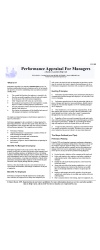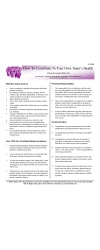It’s An Obligation To Ensure That Any Forum, or Social Media Platform Is Focused, and A Safe Place For Visitors
Most small businesses have a presence on social media platforms, whether it’s on the big platforms (LinkedIn, Facebook, Bebee), or through their own blogs.
Social media relies on engagement in the form of comments from readers, but the reality is that there will always be people who disrupt comment threads via outright spam, promoting scams, trolling, or posting off topic or offensive material.
While many bridle at the thought of being censored, or having their comments deleted, it’s an absolute necessity to keep forums and discussions on topic and to provide a safe place for your visitors.
This applies no less to LinkedIn, as it does to your own hosted blog.
Let’s look at why this is so important, from the perspective of the host of the forum or discussion area – whether it’s you or the large platform.
The Essentials Of Why Social Media “Owners” Need to Take Control Of User Generated Content
The Bad and Irrelevant Crowds Out The Good
Most of us who have run social groups online know that “bad” comments are not just a distraction. As irrelevant, offensive spamming content increases, the excellent contributors stop contributing, ultimately leaving you with a group or discussion that is full of junk.
Branding Issues
Your social “brand” comes from who and what you are associated with in the minds of others. When a group you run is full of junk, or worse, offensive comments, then your brand suffers. There is nothing worse than people coming into a forum that you run or sponsor, only to see a sea of swearing, attacks, pointless arguments, etc.
Visitor Expectations
Positive contributors to your blog comment area, or to your online group or forum, expect you to exercise enough control over the content so that the discussions are actually usable. As an example, Amazon runs various forums, but it doesn’t moderate comments well, or even delete and ban users who misuse those forums, and the result is that the discussions get caught up with people complaining about the junk.
This decreases the value of the forums, drives people out, and as we said earlier, affects the brand.
Topicality Essential
One of the things you’ll notice on social media, particularly the larger platforms, is that groups and forums that are well moderated, maintain proper topicality.
People who sign up for a forum on small business, don’t want to wade through dozens of off topic comments or messages. You see this all the time on badly moderated groups on LinkedIn, and BeBee. People post articles where they believe the most people will see them. The most inconsiderate people ignore the topic of the specific discussion or article area.
Again, lack of topicality destroys the usefulness of the group, or posting area.
So Here’s The Bottom Line
To succeed a social platform has to ensure that content:
- is topical and relevant to the purpose of the forum.
- is a safe place for visitors
Dealing With The Challenge Of Moderating/Censorship
There are those that literally hate the idea of censorship. It’s fair to say that they value the individual right to express themselves over the elements of consideration and the common good. Or the objectors are often the people who WILL disrupt positive, useful conversations.
So, how do you take control over conversations online, without becoming overly stifling of self expression?
The Principles Of Effective Online Moderating
Have Clear Rules
One of the objections to “censorship” is that it can appear to be personal, or capricious. Make sure that people are regularly reminded of the rules for any discussion areas.
A Light Hand Is Best
The best moderation is done lightly and rarely. Yet it must be done to protect the viability of the platform, and the safety of its users.
Don’t Argue About Moderation Decisions
One of the worst things that can happen online is that censorship or moderation becomes the focus on discussion on forums that are not about that topic.
For this reason, make it clear in the rules that discussion of moderation issues are off-topic and will be removed.
Again it is YOUR responsibility to maintain topicality. Don’t get tempted into arguing. State the rules up front. Apply them lightly. Then move on. Your best contributors will be pleased. Your worst disrupters will not like it but will move on if they are ignored and their complaints deleted.
Explain Moderation Decisions ONCE Preferably Privately, Then…
If you can, explain your decision to moderate posts (i.e. delete) privately to the offender. Give them one free strike. If they persist in disrupting, ban them from the forum if that’s possible.
You may decide to explain your actions to the entire user base, but do it once only, and then indicate you will not be discussing it further..
Always Focus On The Welfare Of The User base
Remember that your focus is to make the forum or platform a safe, welcoming and relevant area that people will want to visit and contribute to.
That means that you can’t allow your personal feelings to cause you to take action against people you don’t like, or with whom you disagree.
If you come across comments that are critical of you, or critical of your business — products or services, it’s best to accept them and discuss them rather than to delete the comments.
In fact, it’s essential to deal with REASONABLY stated complaints in reasonable, unemotional and supportive ways.
Conclusion
If you run a social platform that accepts user comments, whether it is huge, like LinkedIn, or a small blog, it’s your responsibility to maintain safety, order, civility and topicality.
Not only is this a theoretical obligation, but it’s essential for YOUR success.
Above all keep in mind that users of social media are guests in the owner’s house. Expect them to behave approriately, and remember that the forum, blog, etc, is PRIVATE PROPERTY.
It is NOT an issue of free speech or constitutional protection.






